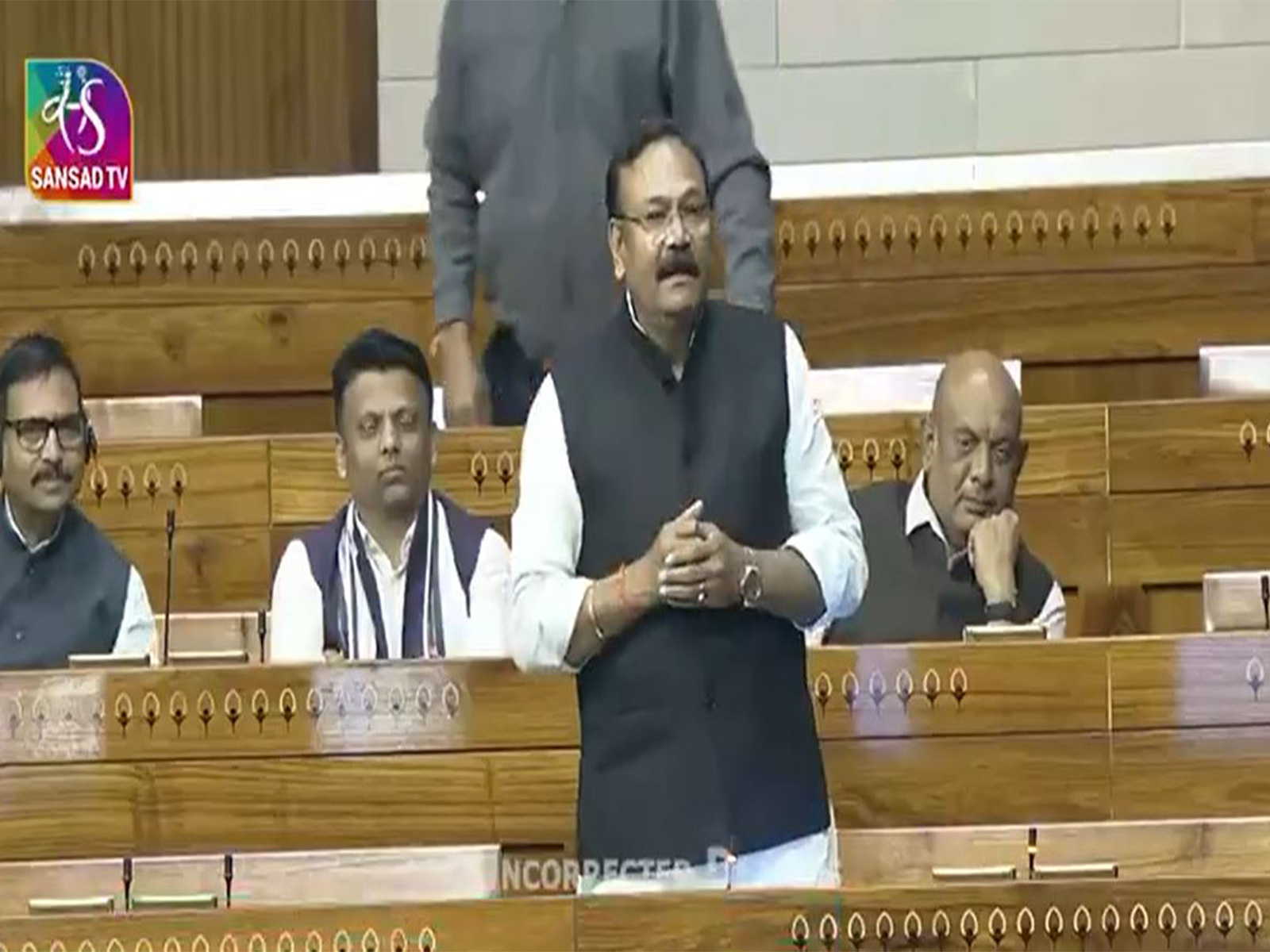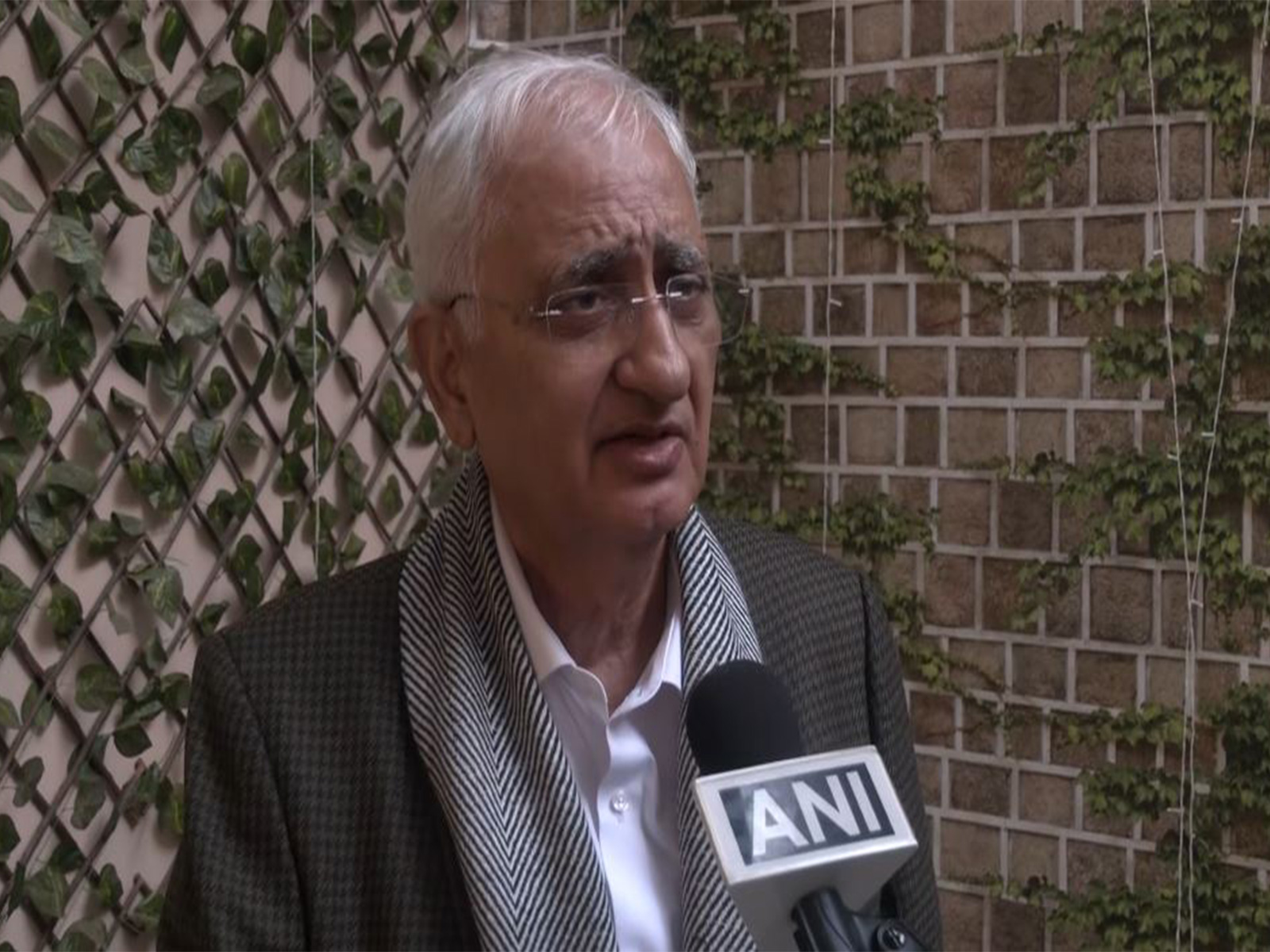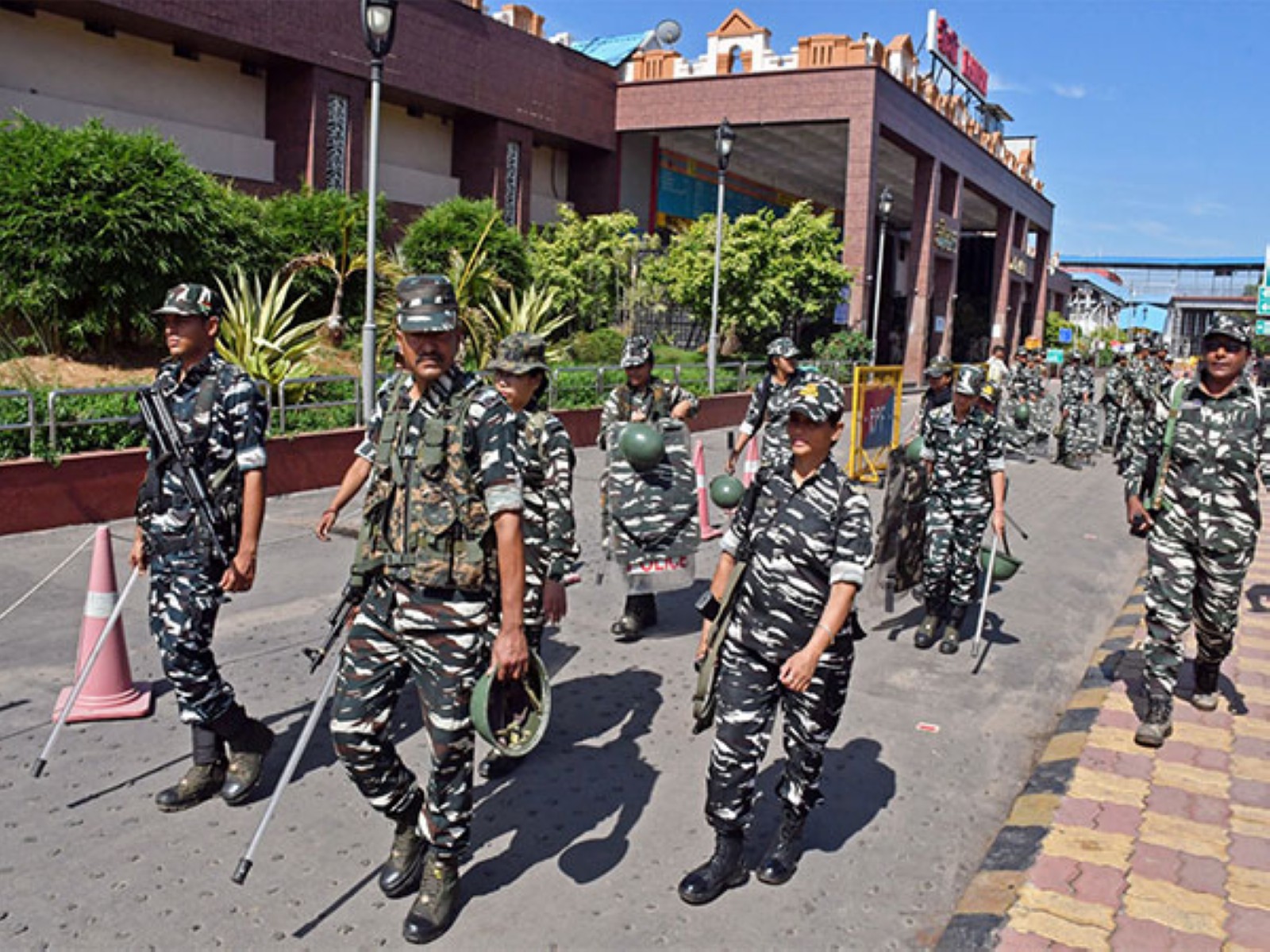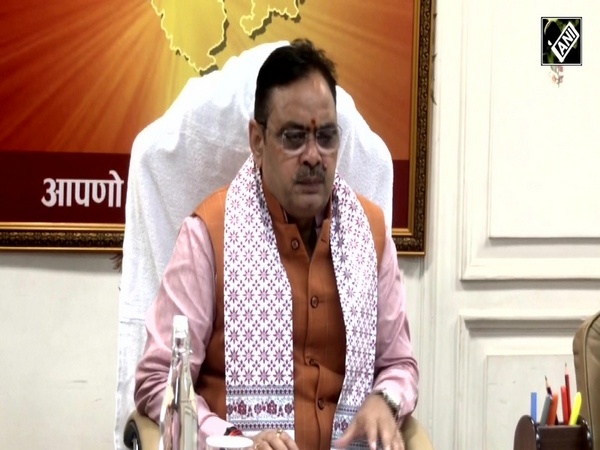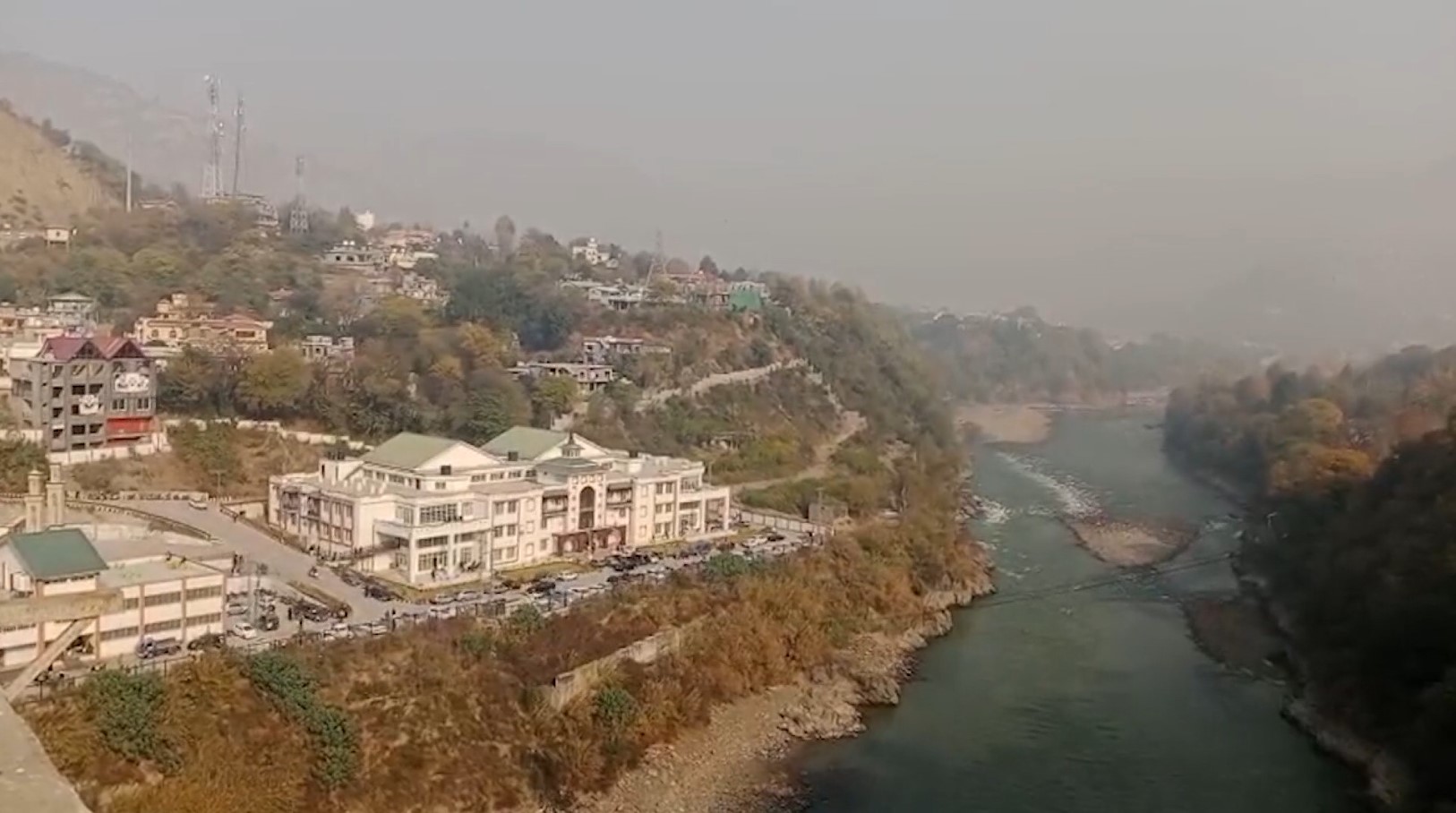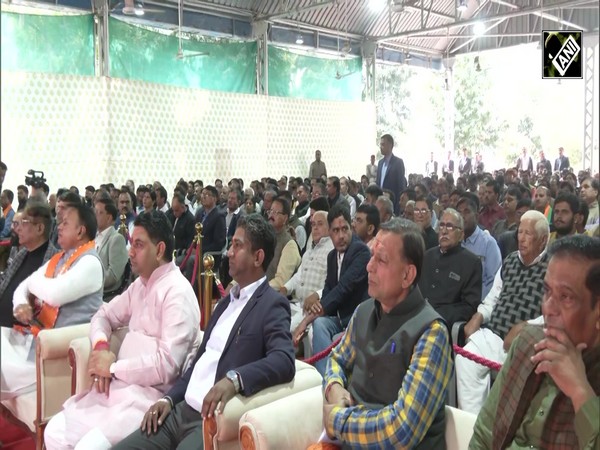"Lost decade, crisis of leadership, scams, policy misadventures...": White Paper slams UPA government's management of economy
Feb 08, 2024

New Delhi [India], February 8 : The decade of the Congress-led UPA government was a lost decade, there was a crisis of leadership and the period was marked by "policy misadventures and scams", the government said in its White Paper on Indian Economy tabled in Parliament on Thursday.
The nearly 60-page White Paper says that the banking crisis was one of the most important and infamous legacies of the UPA government.
'White Paper on the Indian Economy' was tabled in the Lok Sabha and Rajya Sabha by Finance Minister Nirmala Sitharaman on Thursday. It compares the economic management during 10 years of the UPA government with that of 10 years of the BJP-led government.
The White Paper said that the UPA government abandoned reforms after coming to power in 2004 and that it failed to build on the strong foundation laid by the previous BJP-led NDA government.
It said the economy grew fast between 2004 and 2008 largely due to the "lagged effects" of the reforms of the NDA government led by Atal Bihari Vajpayee.
"The UPA leadership, which seldom fails to take credit for the 1991 reforms, abandoned them after coming to power in 2004. Even as the country was standing at the cusp of emerging as a powerful economy, little was done by the UPA government to build upon the strong foundation laid by the previous NDA government....
"In the years between 2004 and 2008, the economy grew fast, thanks to the lagged effects of the reforms of the NDA government and favourable global conditions. The UPA government took credit for the high growth but did little to consolidate it. The failure to take advantage of the years of high growth to strengthen the budget position of the government and invest in infrastructure to boost future growth prospects stood exposed," the White Paper said.
It accused the UPA government of political interference in the commercial lending decisions of public sector banks.
"The banking crisis was one of the most important and infamous legacies of the UPA government. When the Vajpayee-led NDA government took office, the Gross Non-Performing Assets (GNPA) ratio in Public Sector banks was 16.0 per cent, and when they left office, it was 7.8 per cent. In September 2013, this ratio, including restructured loans, had climbed to 12.3 per cent largely because of political interference by the UPA government in the commercial lending decisions of public sector banks. Worse, even that high percentage of bad debts was an underestimate."
The White Paper said the UPA government inherited a healthy economy ready for more reforms, but made it non-performing in its ten years.
"In 2004, when the UPA government began its term, the economy was growing at 8 per cent (with industry and services sector growth above 7 per cent each and a resuscitating agriculture sector growth above 9 per cent in FY04) amidst a benign world economic environment. The Economic Survey of 2003-04 noted, 'The economy appears to be in a resilient mode in terms of growth, inflation, and balance of payments, a combination that offers large scope for consolidation of the growth momentum with continued macroeconomic stability'," the paper said.
It said not only did the UPA Government borrow heavily from the market, but the funds raised were applied unproductively.
"This aspect is evident when we evaluate the quantity, quality and timing of the expenditure by the government during 2004-2014. Capital Expenditure, which finances public investment in infrastructure, was deprioritised in those 10 years, thereby creating long-term constraints for the economy and compromising its growth potential," the paper said.
"As a result of its fiscal mismanagement, the UPA government's fiscal deficit ended up being far higher than it had expected, and it subsequently ended up borrowing 27 per cent more from the market than what it had budgeted for in 2011-12. This was after three years of the global financial crisis when the government should have been fiscally consolidating rather than spending more than the budgeted estimate," it added.
The paper said that the UPA government's response to the 2008 Global Financial Crisis - a fiscal stimulus package to combat the spill-over effects - was much worse than the problem it sought to address.
"It was way beyond the capacity of the Union Government to finance and sustain. Interestingly, the stimulus did not seem to bear any correlation with the outcomes it sought to achieve because our economy was not unduly affected by the crisis. During the GFC, India's growth slowed to 3.1 per cent in FY09 but recovered swiftly to 7.9 per cent in FY10. A cross-country analysis using IMF data on real GDP growth during and after the GFC corroborates the fact that the impact on the Indian economy was relatively limited compared to other developed and developing economies. There was no need for the continuation of the misguided stimulus beyond one year," the paper said.
The White Paper said that there were scandals in defence which compromised defence preparedness and the government delayed the acquisition of weapons.
"In the UPA government, decision-making came to a standstill due to corruption and scandals in defence, compromising defence preparedness. The government delayed the acquisition of artillery and anti-aircraft guns, fighters, submarines, night fighting gear and a host of equipment upgrades," the report said.
The White Paper also referred to the "coal scam", saying allocation of coal blocks was done on "arbitrary basis".
"The coal scam shook the conscience of the nation in 2014. Before 2014, the allocation of coal blocks was done on an arbitrary basis without following a transparent process to allocate the blocks. The coal sector was excluded from competition and transparency and the sector lacked investments and efficiencies. These actions were scrutinised by investigation agencies, and in 2014, the Supreme Court of India cancelled the allocation of 204 coal mines/blocks allocated since 1993," the paper said.
It said controversies such as 2G spectrum scam, coal gate scam and the Common Wealth Games (CWG) reflected poorly on India's image as an investment destination.
"The UPA government's decade of governance (or its absence) was marked by policy misadventures and scams such as non-transparent auction of public resources (coal and telecom spectrum), the spectre of retrospective taxation, unsustainable demand stimulus and ill-targeted subsidies and reckless lending by the banking sector with undertones of favouritism, etc. The 2G spectrum scam involving 122 telecom licenses that had sliced `1.76 lakh crore off the exchequer as per the estimates of the Comptroller and Auditor General (CAG), the coal gate scam costing Rs 1.86 lakh crore to the exchequer, the Common Wealth Games (CWG) scam, etc., indicated an environment of heightened political uncertainty and reflected poorly on India's image as an investment destination," it said.
The White Paper referred to Congress leader Rahul Gandhi lashing out and tearing an ordinance passed by his own government that gave convicted lawmakers a three-month reprieve to retain their seats
"Time and again, there was a crisis of leadership in the UPA government. It came out in full public glare in the shameful public tearing up of an ordinance issued by the government," it said.
"The decade of the UPA government was a lost decade because it failed to capitalise on the strong foundational economy and pace of reforms left behind by the Vajpayee government. The potential of compounding growth never happened," the paper said.
